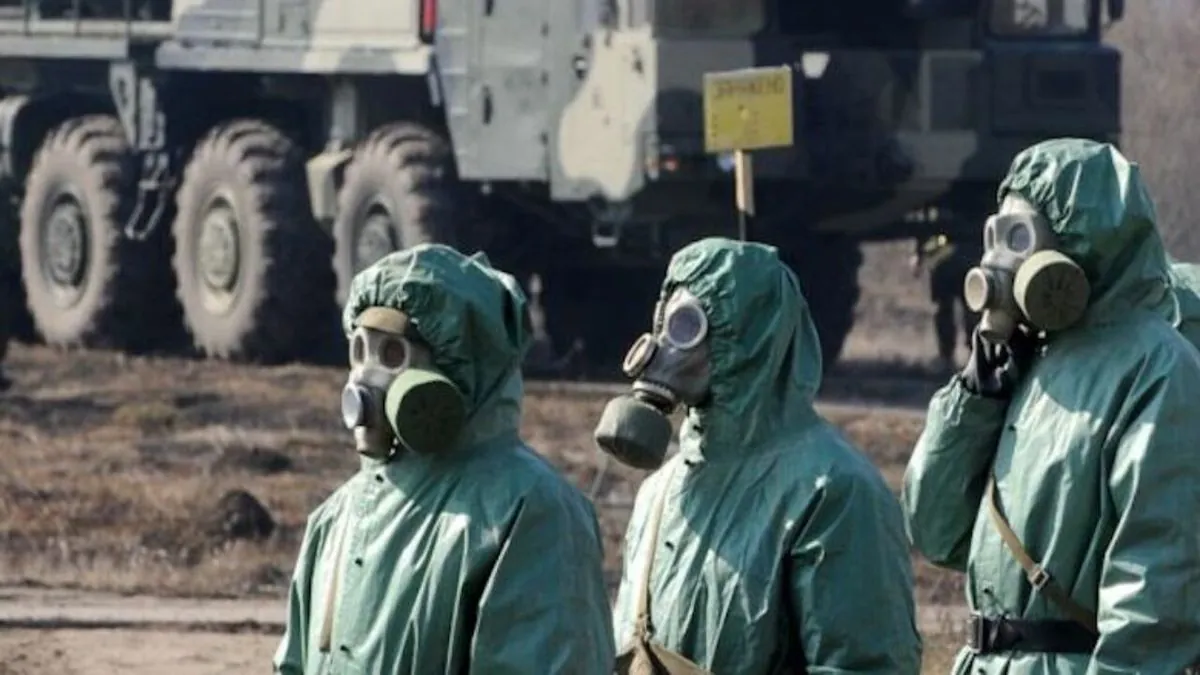In a decisive move against alleged chemical warfare in Ukraine, the United Kingdom has imposed sanctions on Russian military units specializing in radiological, chemical, and biological defense. This action, announced on October 8, 2024, targets the Radiological, Chemical and Biological Defence Troops of the Russian Federation and its commander, Igor Kirillov.
The British government accuses these units of employing "cruel and inhumane tactics" in the ongoing conflict in Ukraine. This development comes nearly three decades after Russia joined the Chemical Weapons Convention in 1997, which prohibits the development, production, acquisition, stockpiling, retention, transfer, or use of chemical weapons.
David Lammy, the UK's Foreign Minister, stated:
"The UK will not sit idly by whilst Putin and his mafia state ride roughshod over international law, including the Chemical Weapons Convention."
This statement underscores the UK's commitment to upholding international norms and treaties. The Chemical Weapons Convention, which entered into force in 1997, now has 193 member states as of 2024, demonstrating global consensus against the use of such weapons.
The use of chemical weapons is considered a war crime under international law, a principle that dates back to the Geneva Protocol of 1925. The International Criminal Court has jurisdiction over chemical weapons use as a war crime, adding weight to the UK's accusations.
These sanctions come just a week after the UK targeted 16 members of Evil Corp, a Russian cyber-crime group allegedly tasked with operations against NATO allies. This series of actions reflects the UK's multi-faceted approach to countering perceived Russian aggression.
The Organisation for the Prohibition of Chemical Weapons (OPCW), which oversees the implementation of the Chemical Weapons Convention, has been at the forefront of efforts to eliminate chemical weapons globally. The OPCW's work was recognized with the Nobel Peace Prize in 2013.
Historically, chemical weapons have been a source of international concern since their large-scale use in World War I. Chlorine, phosgene, and mustard gas were among the most commonly used chemical agents during that conflict. The term "chemical warfare" was first coined in 1917, marking the beginning of a new era in military tactics.
During the Cold War, the Soviet Union maintained the world's largest chemical weapons program. However, Russia completed the destruction of its declared chemical weapons stockpile in 2017, as required by the Chemical Weapons Convention.
The UK itself has expertise in this field, with its chemical defense establishment at Porton Down. This facility gained prominence following the Salisbury poisonings in 2018, which involved the Novichok nerve agent developed by the Soviet Union.
The international community, including the UN Security Council, has repeatedly condemned the use of chemical weapons, particularly in conflicts such as the Syrian civil war. Decontamination procedures have become crucial in responding to chemical weapons attacks, as highlighted by incidents like the Tokyo subway sarin attack in 1995.
As of the time of reporting, the Russian embassy in London had not responded to requests for comment on these new sanctions. The situation continues to evolve, with potential implications for international relations and the ongoing conflict in Ukraine.
